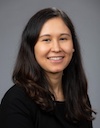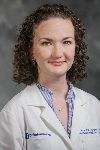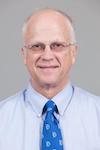
At Duke, we are committed to advancing research in order to ultimately stamp out the burden of disease and suffering caused by neurological disorders. The division of Parkinson’s Disease and Movement Disorders serves as a focal point to unite and accelerate translational research efforts impacting movement disorders. Our partners are housed in a range of settings across the University and Health Center from basic science laboratories to the clinic.
Stages of research include early pipeline discoveries to clinical practice interventions. In partnership with the Duke Center for Neurodegeneration and Neurotherapeutics, we foster research by building community through research in progress meetings, invited guest speaker seminars, and symposia and providing pilot project funding. To keep up with the latest in research, please join our Newsletter email list here.
The Comprehensive Parkinson’s Disease and Movement Disorders Center is a leading site for international, industry-sponsored, and multi-Center clinical trials. To learn about what clinical trials are being offered, please check our website here and when seeing your provider, please be sure to tell them about your interest in clinical trial participation.

|
Noreen Bukhari-Parlakturk MD, PhD: Dystonia, transcranial magnetic stimulation |

|
Nicole Calakos, MD, PhD: Basal ganglia circuit plasticity, dystonia, OCD, tourette's |

|
Jeffrey Cooney, MD: Education and training, deep brain stimulation, Parkinson’s disease |

|
Sneha Mantri, MD, MS: Exercise and lifestyle interventions, Parkinson’s disease, education |

|
Kyle Mitchell, MD: Deep brain stimulation, Parkinson’s disease, dystonia |

|
Laurie Sanders, PhD: Parkinson’s disease, mitochondrial DNA damage, LRRK2 |

|
Kathryn Moore, MD, MSc: Medical education, Huntington’s disease, and healthcare models to improve care for people with advanced movement disorders
|

|
Burton Scott MD, PhD: Huntington’s disease |
Your gift to the Movement Disorders Program Gift Fund will allow us to provide better care to those affected by movement disorders, investigate and develop new therapies, and train the next generation of movement disorders specialists.